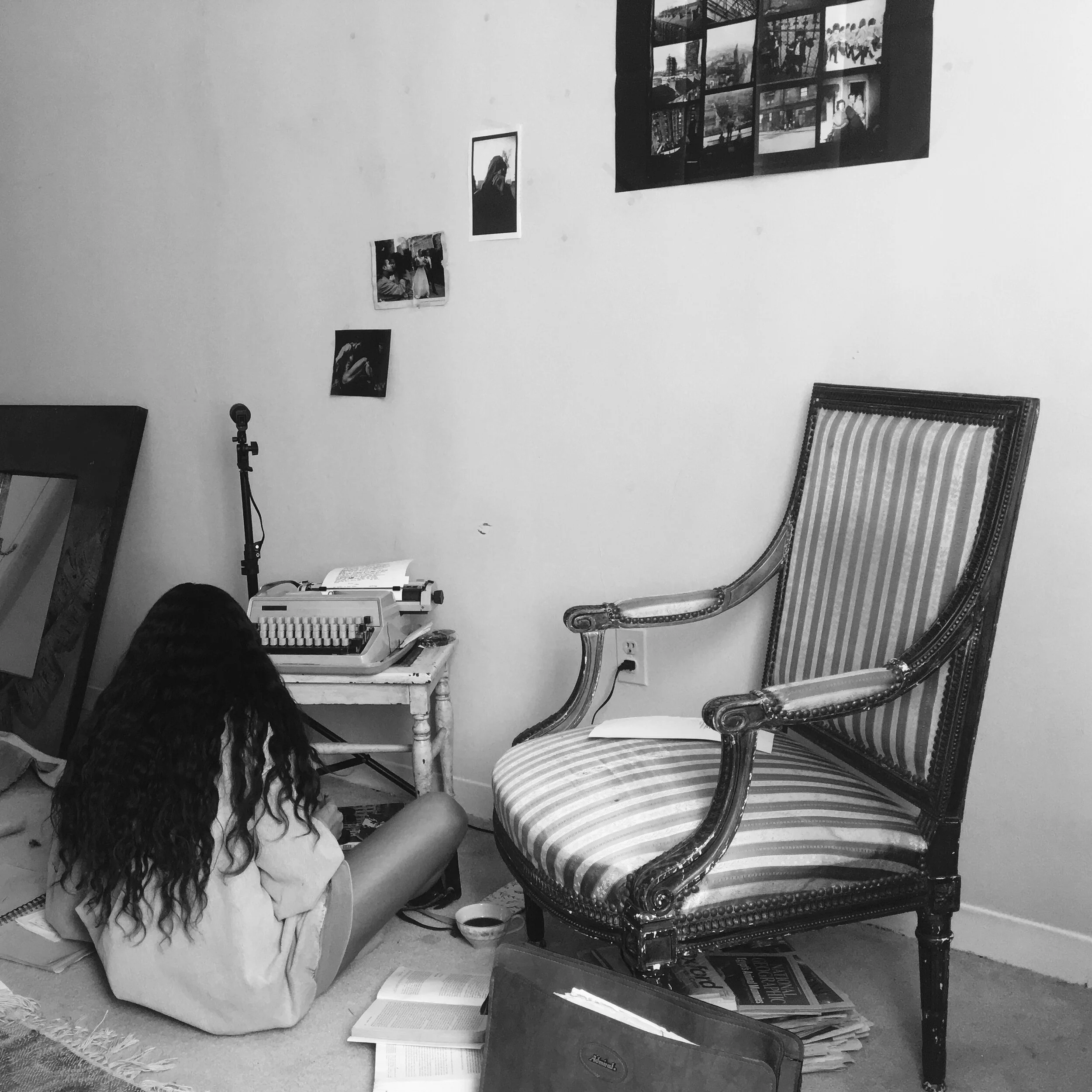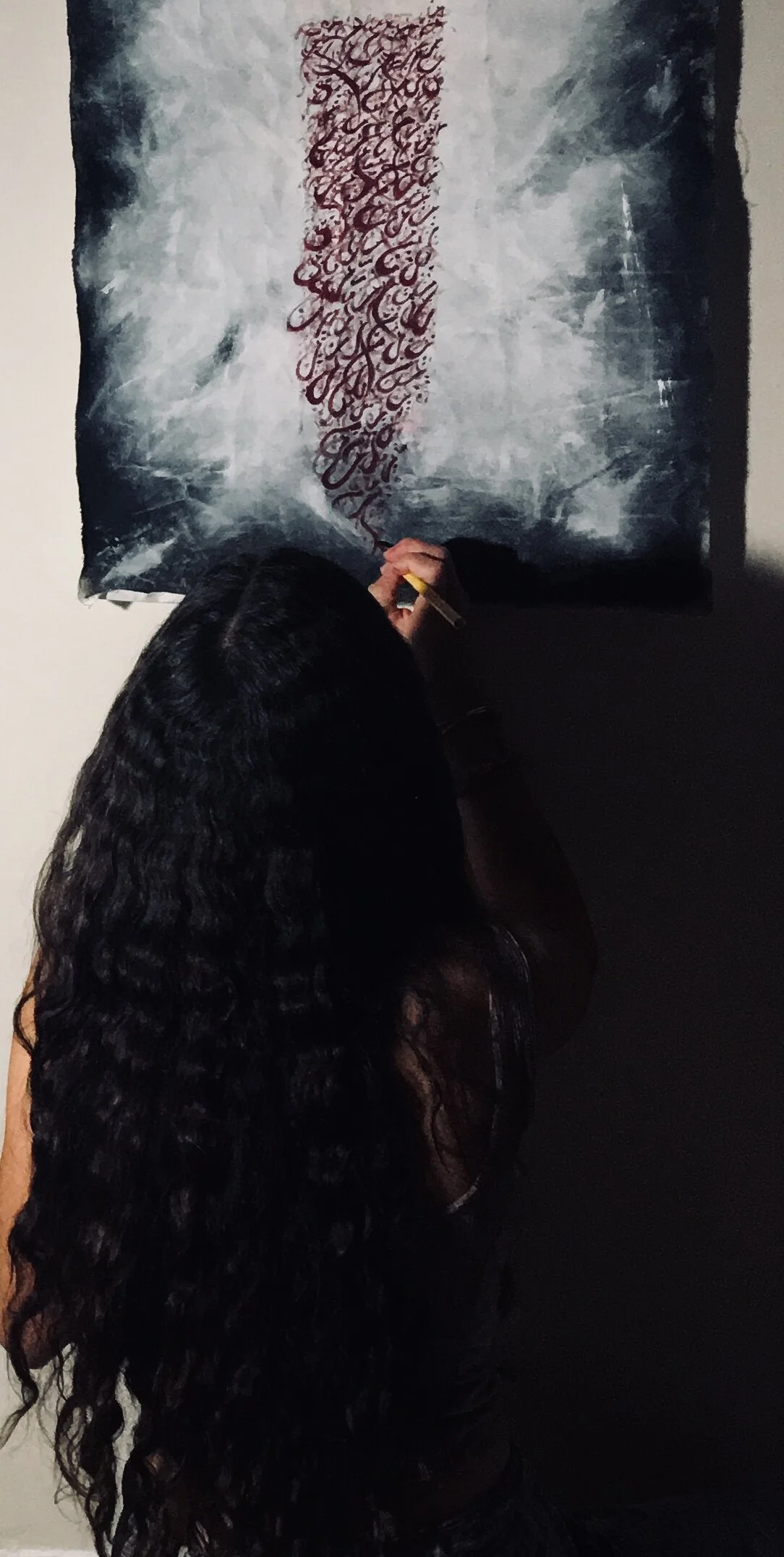The Need for Fantasy
There’s a script I’ve been tortured with since September.
It began in the spring of 2020 while I was taking my first screenwriting class in Edinburgh. I had this idea for a short film about a graffiti artist and his ailing father. I called it “Streetson,” and the film was going to capture the way a young man used his art and the streets in order to deal with the slow, painful deterioration of his father. He would play a graffiti artist at night, a caretaker for his father during the day. I imagined the relationship between them would be strained, filled with all the things left unsaid, and what was unsaid would settle heavily in the space around them, charging the air with tension and a deep sadness for what, after so long, could never be changed, not even in the fragility of one’s final chapter.
We were set to film in April. Then the pandemic hit and I had to leave Scotland in the middle of March. I put the script aside, and when I picked it back up in September, after an agonizing summer, I felt that something wasn’t right. To begin with, it was not my story to tell, but the story of a friend who was like a brother to me. I started to doubt whether I had the right to use his story, or at least parts of it. Then, I thought of turning the graffiti artist into a sort of part-time father who picks up his son for the weekend and ends up having to keep him when the mother doesn’t take him back. I wanted to capture the recklessness of the father as he brings his son along with him on his nights out on the street, how the son is forced to behave more like the father while the father behaves more like a son. I felt better about this one because I was using parts of my own story, but nothing came of that script either.
Then, I thought of myself, and the life I was trying to live in the campervan I’d built that summer. I knew something was deeply wrong about the way I’d been living, and I thought, by studying my character through a script, I would arrive at what was wrong and what had to be changed. I was reading through The Anatomy of Story, trying to understand how a screenplay is written, how it comes together. In it, Truby says that the main character must be missing something “that is so profound it is ruining [her] life,” but that she also shouldn’t be aware of what it is in the beginning. Instead, some sort of revelation is supposed to happen at the end when the character decides on an action that is uncharacteristic and daring (in their terms) and through that action, arrives at the final insight. Suddenly, she understands. She sees what was missing, what was wrong, what must be changed.
But, to come up with a self-revelation, the writer has to have a deep understanding of what it is this character has accepted or submitted to that is now no longer bareable or sustainable. What could threaten or challenge the environment she has built for herself as a result of a weakness she has avoided dealing with? Then, most importantly, what is that weakness, what is the “profound” thing that she’s missing?
Maybe I was mistaken to choose a character who is as badly in need of a definition as I am, and who is just as vague, rootless and unspecific. She is more like water than a body, more imaginary than real. Each time I go back to the page and try to gather her loose and scattered pieces into one, she escapes me. I can see her before me, bathing in the river, lying in her van, trying to speak with a stranger, but she is fleeting, only coming when I am far from my desk, and leaving just as quickly when I try to catch her.
The need for fantasy
In order to ground my character, I gave her a son, then an ex-lover whom she has agreed to meet for the weekend so that he could see his son. It’s been a year. His tidy, immaculate appearance defines her but what she is not and all that she is. She is not part of the real world he comes from, whom he dresses for and carries with him. She has built and withdrawn into her fantasy, a fantasy that is to her more real than the original place she sought escape from. Her son is necessary because he stands somewhere in the middle between the two. He is her only tie to the real world. He buys the groceries, repairs the van. He is a boy who acts like a man, for her. But with his father, and only then, he is a boy. Still, he is unsure of his father’s world. In it, things are ordered, unambiguous, unromantic, and he yearns for those elements in his mother’s world.
But I know, despite the deep love and understanding I have for my main character, that she, on screen, would be hated for her fantasy. First for the sake of her son, then, for hers. How, then, do I make my audience understand the necessity of this fantasy, and that, most important of all, she is not aware she has built it, that she has lost herself in it, that it is what it is, a delicate fantasy, one which is, most painfully of all, a place she cannot leave it.
In a book I recently read called “The Kindness Method,” Izadi talks about how habits, though limiting and obstructive in the present moment, once served an important purpose in our life. But it is on us to convince the body that the purpose is no longer there, the need for it gone, that the setting has changed, the area around the body safe, now. From my own experience, I can say honestly is almost impossible to do this, especially when that habit has served you through decades of trauma.
See without this fantasy that both I and my main character Sky have built, we simply would not have survived. The past for us has been so horrible that without another world to withdraw to, we would not have been able to bear our circumstances. But what happens when the circumstances change and the world we’ve built goes on? What if we can’t leave it?
Where do I go from here?
Sky doesn’t leave it, at least not within the timeframe of the script. She resists. She fights against any parts of the real world that spill into her own life. All encounters with it, even small, daily occurrences that to others mean nothing are too much for her. Asking a stranger for a lighter, running a cycle at the laundromat, carrying a conversation with someone who is very much a part of that world. I don’t mean to exaggerate her character. All that she suffers through, all that she resists, I suffer and resist through just the same.
In his book, Truby explains that “the world should embody, highlight, or accentuate your hero’s weakness… [and] draw it out in its worst form.” If the need for fantasy is Sky’s weakness, then everything in the world around it should be at war against it, directly and indirectly. All events should highlight the delicacy of this fantasy. But what about the need its serving? How to show that this fantasy, although the character’s greatest fault, is, after all, necessary, and that without it, her undoing is almost certain. And, is the undoing what has to happen in her transition between the fantasy and the real world, a world she has yet to realize is safe to return to?
Fantasy has a place for only one person. Like the past, you cannot bring anyone there with you. That is the stakes for Sky. She can have it, but alone. Her son, though physically present beside her, cannot truly be with her. But there are beautiful parts to this fantasy too, the life on the road, the art she escapes with, the way she sees the world, people, her slow pace of life.
That is where I, the creator of Sky, get lost. I cannot choose for her, neither can I choose for myself. Would I leave this fantasy? Probably not. Would I risk my unraveling for the sake of not losing someone precious? I think I would. So in the end, I choose both. And in such a short film, is there time for revelation? Is there time for Sky to see what she risks in resisting all that is real and overwhelming, or does the need for her fantasy only increase after her efforts to reenter what she willingly left goes so wrong?




